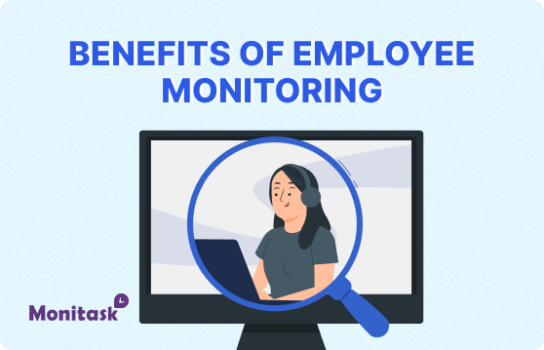Hiring Team
A hiring team is a crucial component of any organization's recruitment process. This group of individuals works collaboratively to identify, attract, evaluate, and ultimately select the best candidates for open positions within the company. In this comprehensive guide, we'll explore the various aspects of a hiring team, its importance, and how to effectively manage one.
What is a Hiring Team?
A hiring team, also known as a recruitment team or interview panel, is a group of employees from different departments and levels within an organization who come together to participate in the hiring process. This team typically includes HR professionals, hiring managers, potential coworkers, and sometimes even executives, depending on the position being filled.
The primary goal of a hiring team is to ensure a thorough and fair evaluation of candidates, leveraging diverse perspectives and expertise to make informed hiring decisions. By involving multiple stakeholders, organizations can reduce bias, improve the quality of hires, and increase the likelihood of finding candidates who are not only qualified but also a good fit for the company culture.
Key Roles in a Hiring Team
While the composition of a hiring team may vary depending on the organization and the position being filled, there are several key roles that are commonly found:
1. Hiring Manager
The hiring manager is typically the person who will be directly supervising the new hire. They play a crucial role in defining the job requirements, reviewing resumes, and conducting interviews. The hiring manager often has the final say in the hiring decision.
2. HR Representative
Human Resources professionals are responsible for coordinating the hiring process, ensuring compliance with labor laws and company policies, and providing guidance on best practices. They often conduct initial screenings and facilitate communication between team members.
3. Team Members
Current employees who will be working closely with the new hire are often included in the hiring team. They can provide valuable insights into the day-to-day responsibilities of the role and assess how well a candidate might fit into the team dynamic.
4. Subject Matter Experts
For technical or specialized positions, subject matter experts may be brought in to evaluate a candidate's specific skills and knowledge. These individuals can ask in-depth questions and assess the candidate's expertise in relevant areas.
5. Executive Sponsor
For senior-level positions or roles that are critical to the organization, an executive sponsor may be involved in the hiring process. They can provide a high-level perspective on how the candidate aligns with the company's strategic goals.
Benefits of Using a Hiring Team
Implementing a hiring team approach offers several advantages over relying on a single individual to make hiring decisions:
Diverse Perspectives
By involving multiple team members with different backgrounds and expertise, organizations can gain a more well-rounded view of each candidate. This diversity of perspectives can help identify strengths and weaknesses that might be overlooked by a single interviewer.
Reduced Bias
Having multiple people involved in the hiring process can help mitigate individual biases. When decisions are made collectively, there's less chance for personal preferences or unconscious biases to unduly influence the outcome.
Improved Candidate Experience
Candidates often appreciate the opportunity to meet with various members of the organization during the interview process. This gives them a better sense of the company culture and allows them to ask questions to different stakeholders.
Better Quality of Hire
With multiple team members evaluating candidates from different angles, organizations are more likely to identify the best fit for both the role and the company culture. This can lead to improved retention rates and better long-term performance.
When the hiring decision is made collectively, team members feel a sense of shared responsibility for the new hire's success. This can lead to increased support and engagement during the onboarding process.
Challenges of Managing a Hiring Team
While hiring teams offer numerous benefits, they also come with their own set of challenges that organizations must address:
Coordination and Scheduling
Coordinating schedules and availability for multiple team members can be logistically challenging, especially for busy professionals. This can sometimes lead to delays in the hiring process.
Conflicting Opinions
With multiple perspectives comes the potential for disagreement. Team members may have differing opinions on candidates, which can lead to conflicts if not managed properly.
Inconsistent Evaluation Criteria
Without proper guidance, different team members may focus on different aspects of a candidate's qualifications or use inconsistent criteria for evaluation. This can lead to an unfair or ineffective assessment process.
Overemphasis on Consensus
In some cases, the desire to reach a consensus among all team members can lead to compromises that result in hiring a "safe" candidate rather than the best one for the role.
Lengthy Decision-Making Process
Involving multiple stakeholders in the hiring process can sometimes lead to delays in decision-making, potentially causing organizations to lose out on top candidates who receive offers elsewhere.
Best Practices for Managing a Hiring Team
To maximize the benefits of a hiring team while minimizing potential challenges, consider implementing the following best practices:
1. Clearly Define Roles and Responsibilities
Ensure that each member of the hiring team understands their specific role and responsibilities in the process. This includes defining who will conduct which types of interviews, who has decision-making authority, and how feedback will be collected and shared.
2. Establish Consistent Evaluation Criteria
Develop a standardized evaluation framework that all team members can use to assess candidates. This might include a rubric or scorecard that outlines the key competencies and qualifications required for the role.
3. Provide Interview Training
Offer training to all hiring team members on effective interviewing techniques, legal considerations, and how to avoid common biases. This can help ensure a fair and consistent evaluation process.
4. Use Structured Interviews
Implement a structured interview process where all candidates are asked the same core questions. This allows for more objective comparisons between candidates and reduces the impact of individual interviewer biases.
5. Leverage Technology
Utilize applicant tracking systems (ATS) and other HR technologies to streamline the hiring process, facilitate communication between team members, and centralize candidate information and feedback.
6. Encourage Open Communication
Foster an environment where team members feel comfortable sharing their honest opinions and concerns about candidates. Encourage respectful debate and discussion to arrive at the best hiring decisions.
7. Set Clear Timelines
Establish and communicate clear timelines for each stage of the hiring process. This helps keep the process moving forward and ensures that all team members are aligned on expectations.
8. Conduct Debrief Sessions
After each round of interviews, hold debrief sessions where team members can share their observations and discuss candidates. This allows for a more thorough evaluation and helps identify any areas where additional information may be needed.
9. Balance Team Input with Decision-Making Authority
While it's important to consider input from all team members, ultimately, there should be a clear decision-making process in place. This often involves giving the hiring manager or a designated leader the final say, informed by the team's collective input.
10. Continuously Improve the Process
Regularly solicit feedback from hiring team members and candidates to identify areas for improvement in the hiring process. Use this information to refine and optimize your approach over time.
Composing an Effective Hiring Team
When putting together a hiring team, consider the following factors to ensure you have the right mix of perspectives and expertise:
Diversity
Aim for a diverse team in terms of gender, ethnicity, age, and background. This can help bring different viewpoints to the table and reduce the potential for unconscious bias.
Relevant Expertise
Include team members who have the technical knowledge or skills relevant to the position being filled. This ensures that candidates can be properly evaluated on their qualifications.
Cross-Functional Representation
Consider including representatives from different departments or teams that will interact with the new hire. This can help assess how well the candidate will collaborate across the organization.
Cultural Fit Assessment
Include team members who can effectively evaluate a candidate's potential fit with the company culture. This might include long-tenured employees or those who embody the organization's values.
Future Growth Consideration
If the role has potential for advancement, consider including someone from a higher level in the organization who can assess the candidate's long-term potential.
The Role of Technology in Hiring Teams
Technology plays an increasingly important role in supporting hiring teams and streamlining the recruitment process. Some key technologies that can enhance the effectiveness of hiring teams include:
Applicant Tracking Systems (ATS)
ATS platforms help manage the flow of candidates through the hiring process, allowing team members to easily access resumes, schedule interviews, and track candidate progress.
Video Interviewing Tools
These tools facilitate remote interviews and allow for asynchronous video responses, making it easier to coordinate interviews across different time zones and schedules.
Collaboration Platforms
Tools like Slack or Microsoft Teams can help hiring team members communicate and share information about candidates in real-time.
Assessment Tools
Online skills assessments, personality tests, and other evaluation tools can provide objective data to supplement interview feedback.
AI-Powered Screening
Artificial intelligence can be used to screen resumes, match candidates to job requirements, and even conduct initial interviews, helping to streamline the early stages of the hiring process.
Measuring the Success of Your Hiring Team
To ensure that your hiring team is effective and continually improving, it's important to track key metrics and gather feedback. Some important measures to consider include:
Time-to-Hire
Track how long it takes from the initial job posting to the acceptance of an offer. A more efficient hiring team should be able to reduce this timeframe.
Quality of Hire
Assess the performance and retention rates of new hires over time. This can help determine if the hiring team is successfully identifying top talent.
Candidate Experience
Gather feedback from candidates about their experience with the hiring process. This can provide valuable insights into areas for improvement.
Team Satisfaction
Survey hiring team members to gauge their satisfaction with the process and identify any pain points or suggestions for improvement.
Offer Acceptance Rate
Monitor the percentage of job offers that are accepted. A high acceptance rate can indicate that the hiring team is effectively selling the opportunity to candidates.
Conclusion
A well-managed hiring team can be a powerful asset in any organization's recruitment efforts. By leveraging diverse perspectives, standardizing evaluation criteria, and utilizing technology, companies can create a more effective and fair hiring process. While challenges exist in coordinating and aligning multiple stakeholders, the benefits of improved decision-making and better-quality hires make the effort worthwhile.
As the job market continues to evolve, organizations that invest in developing strong hiring teams will be better positioned to attract and retain top talent. By continuously refining their approach and adapting to new best practices, hiring teams can play a crucial role in building high-performing, diverse, and engaged workforces.
Remember, the key to success lies in clear communication, consistent processes, and a commitment to finding the best fit for both the role and the organization. With these elements in place, a hiring team can become a true competitive advantage in the ongoing war for talent.


